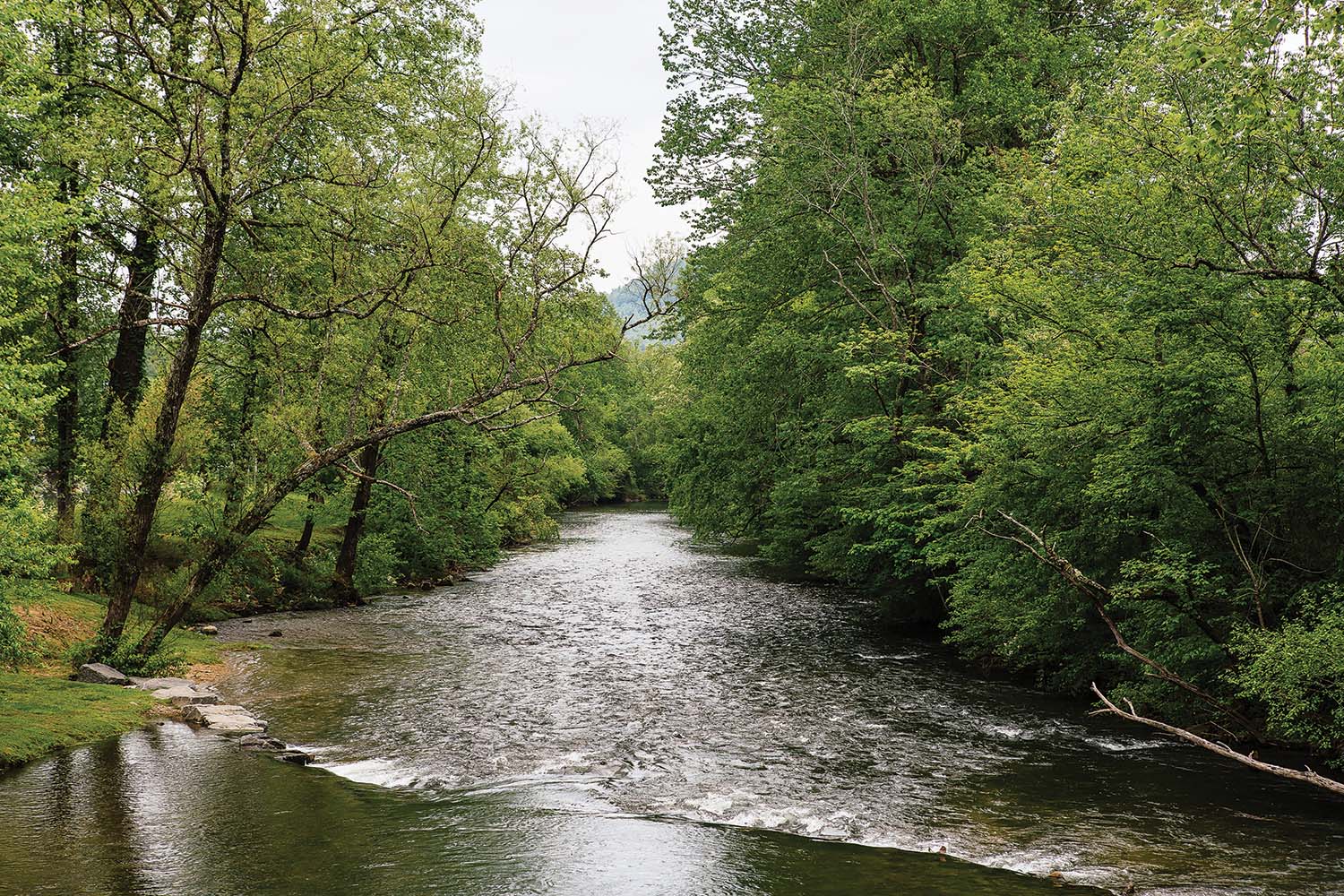
“Water quality doesn’t get any better than that,” according to those who know the Upper French Broad River in Rosman. Photo by Tim Robison
Organizers in Rosman are too mannerly to call their second annual event “The Other French Broad River Festival,” opting for a purely logistical designation: The Upper French Broad Riverfest. But those who’ve experienced the river’s pristine headwaters know that the starting point of the waterway looks and feels much different than its more-traveled channels.
The French Broad River is Western North Carolina’s most famous waterway, and rightly so. It is well documented as the third oldest river in the world, and, as such, was one of the first rivers to prompt legacy-level environmental awareness (via Wilma Dykeman’s 1955 eponymous book, The French Broad, which exhorted readers to save the river from further pollution and unruly development).
The river carves a flat recreational swath through downtown Asheville, identifying a nationally known arts district and supporting flotillas of tubers and kayakers in three seasons. Its cultural stamp is everywhere: visitors might find French Broad Chocolates or French Broad Brewery and wonder about the funny name before learning about the inspiration. (The settlers who titled the river just meant it was wide and in French colonial territory; no Gallic dame was involved.) In Madison County, NC, near its terminus in Tennessee, the French Broad picks up rapids and gets seriously scenic, providing sufficient whitewater for rafters and setting a natural stage for a yearly music festival that celebrated its 20th anniversary in April.
However, the character of the river is quite different at its source — remote and tranquil in southern Transylvania County, in a cove of Pisgah National Forest. “That’s Milemarker 0,” points out David Whitmire, co-owner of Headwaters Outfitters in Rosman, which supplies gear and guides for fly-fishers and runs canoes, kayaks, and tubes on the Upper French Broad. “Water quality doesn’t get any better than that.”
Whitmire also reveals that the river is the most Southeastern tributary of the Mississippi. The channel is narrow here, and the importance of “strainers and sweepers” — those who keep the course clear of storm debris and other hazards to canoers and kayakers — can’t be underestimated. (Their role isn’t as urgent in wider parts of the French Broad.)
The grassroots festival is a joint project with Transylvania French Broad Stewards, a citizen-run nonprofit that clears logjams on the Upper portion of the river and protects the aquatic ecosystems of the microregion. If the event had a mascot, it would be the Eastern hellbender salamander, one of the few giant salamanders left in the world, and a state Species of Special Concern.
“Their population here is some of the best in the Southern Appalachians,” says Whitmire. Animal displays will likely always be a part of the Upper French Broad Riverfest. “Questions of sustainability are something we all have to look at in WNC,” he says.
The Upper French Broad Riverfest happens Saturday, June 24, 10am-5pm, at Champion Park in Rosman, with food trucks, music, kids’ activities, fishing games, tubing, educational programs, a gear swap and sale, and a 20-mile paddle relay. For more information, see the event’s Facebook page or transylvaniafrenchbroadstewards.org.
